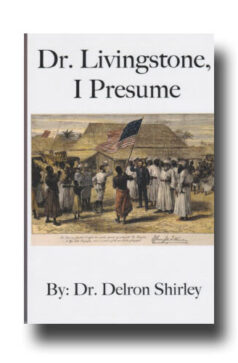Standing in the Bible denotes a position or posture of victory, power, authority, and blessing. On at least three occasions, the people of God were directed to stand still and watch God work on their behalf. When they were between the “devil and the deep blue sea” as Pharaoh’s army approached from behind and the Red Sea blocked their escape in front, Moses consoled the people, “Fear ye not, stand still, and see the salvation of the Lord, which he will shew to you to day: for the Egyptians whom ye have seen to day, ye shall see them again no more for ever.” (Exodus 14:13) Of course, we all know the story of how the waters stood up like walls so that the Israelites could walk through on dry ground and then collapsed upon the Egyptians when they tried to pursue. When Saul was to be crowned as the first king of Israel, Samuel called for a miraculous confirmation of his words by declaring, “Now therefore stand and see this great thing, which the Lord will do before your eyes.” (I Samuel 12:16) In spite of the fact that it was harvest season (the driest part of the year in Israel) torrents of rain, peals of thunder, and bolts of lightning gave a supernatural “Amen” to the man of God. Second Chronicles chapter twenty tells the story of how Jehoshaphat was pitted against three enemy armies simultaneously. Knowing that there was no way he could fight against such a formidable foe, he appealed to God for help and received the most remarkable of all answers, “Ye shall not need to fight in this battle: set yourselves, stand ye still, and see the salvation of the Lord with you, O Judah and Jerusalem: fear not, nor be dismayed; to morrow go out against them: for the Lord will be with you.” (II Chronicles 20:17) The story that echoes through the annals of history tells how that Jehoshaphat sent the praise team out first and God caused the enemies to destroy one another. All the Israelite army had to do was to collect the booty from the fallen soldiers.
Even though these stories may seem to indicate differently, standing never means inactivity. In most cases, it means valiant fighting (II Samuel 23:12; Esther 8:11, 9:16), but even when the people didn’t have to lift the sword, standing was an act of aggressive faith. God also promised that no enemy who challenged Israel would be able to stand before them (Joshua 1:5 21:44, 23:9); unfortunately, there was also a flipside to the coin in that Israel would not be able to stand against their enemies if they were in rebellion against God (Judges 2:14).
Probably the most honorable aspect of standing is the invitation to stand in the presence of the Lord Himself. (Deuteronomy 10:8; II Kings 5:16; II Chronicles 20:13; Jeremiah 35:19; Luke 1:19) However, the Lord also declared that no ungodly person would be able to stand before Him. (Job 41:10; Psalm 1:5) The Word of God is replete with admonitions about what it takes to be worthy of standing:
Faith (Romans 5:2, I Corinthians 16:13, II Corinthians 1:24)
Divine election (Romans 9:11)
God’s ability (Romans 14:4)
The power of God (I Corinthians 2:5)
The gospel (I Corinthians 15:1)
The liberty that Christ has given us (Galatians 5:1)
One spirit (Philippians 1:27)
The Lord (Philippians 4:1, I Thessalonians 3:8)
The Word of God (II Thessalonians 2:15)
The will of God by intercessory prayer (Colossians 4:12)
The grace of God (I Peter 5:12)
Triumphantly stand in the day of wrath (Revelation 6:17)
Against the wiles of the devil (Ephesians 6:11)










